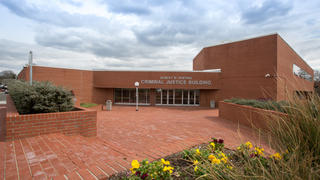Just Starting on Your College Journey?
The North Carolina Central University School of Law offers several programs that can lead to the award of a joint degree.
As part of “The Eagle Promise,” we promise our students four outcomes upon graduation: completing a degree program on time, becoming socially and globally engaged, demonstrating proven leadership, and graduating market ready.
The North Carolina Central University School of Law offers several programs that can lead to the award of a joint degree.

Day Program classes normally meet between 8:30 a.m. and 6:30 p.m. on weekdays in the fall and spring semesters.

The Evening Program is designed for particularly enterprising people who seek to earn a law degree while working full time.

North Carolina Central University School of Law offers every student an opportunity to become thoroughly grounded in the fundamentals of the law.

The School of Law offers four certificate programs. Upon completion of the specified requirements, law students may earn a certificate in Civil Rights and Constitutional Law, Dispute Resolution, Tax Law, or Technology and Law Policy.

NCCU Law is strongly committed to preparing students for the increasing technology-driven legal industry and, in support of that goal, has established the NCCU Law and Technology Certificate Program.

The Academic Success Program is designed to help you get acclimated to learning in law school and to empower you to become independent, self-regulating learners.

Our policies are central to the Law School’s emphasis on producing graduates who are immediately ready to practice.
The Biotechnology and Pharmaceutical Law Institute has been established as a center of excellence in the field of biotechnology and pharmaceutical law through its multidisciplinary approach in teaching, research and publications. The Institute’s mission is to make substantial contributions to the development of global biotechnology and pharmaceutical law and to the investigation and examination of contemporary issues in U.S. regulatory affairs issues.
The legal system’s increasing resort to non-adversarial methods of resolving legal disputes reflects not simply dissatisfaction with litigation, but a broader and growing interest in finding new ways to respond to conflict. This search for alternatives presents both opportunities and challenges to our profession and to the way we prepare lawyers for practice. The Dispute Resolution Institute will lead our profession in taking full advantage of these opportunities and responding thoughtfully to these challenges.
In 2015, North Carolina Central University (NCCU) School of Law established the Intellectual Property Law Institute (IPLI) in an effort to boost minority representation in the area of Intellectual Property (IP) law.
Flight School equips students with essential academic skills necessary for success, including critical legal reading, case briefing, analytical reasoning, and writing. During the program, students participate in a series of lectures and workshops led by experienced faculty members. The program includes a “Succeeding in Law School” speaker series featuring practicing attorneys, judiciary members, recent graduates, and university and community leaders.
Additionally, the program highlights the importance of effective study strategies, time management, and stress reduction techniques, providing students with the tools to take flight and soar in their journey in law school and the legal profession.
The Poverty Research Project examines and documents economic insecurity in North Carolina. It delivers accessible, timely and nonpartisan analysis, works with and supports community organizations across the state, and provides learning opportunities and guidance to students interested in poverty-related topics.